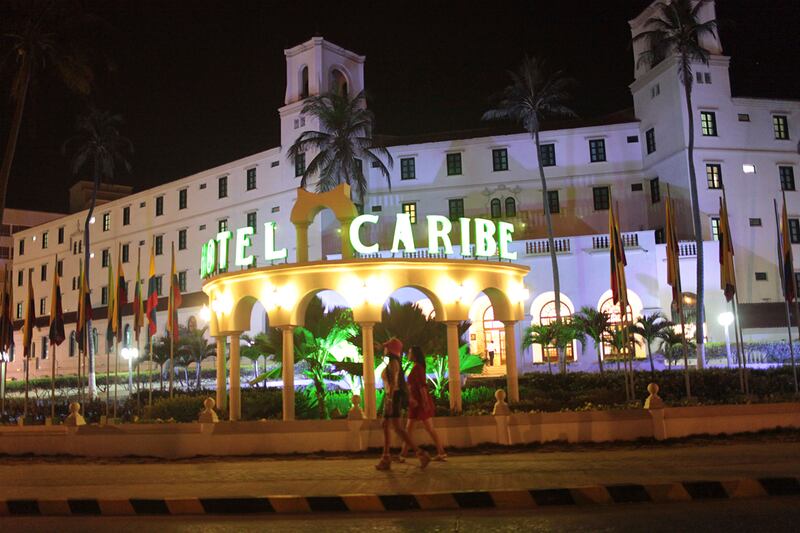The Secret Service agents I’ve encountered are all business, but they are for the most part young or youngish men, and it doesn’t surprise me that they party when they’re out of town on the taxpayers’ dime. At the White House, or at events around town, they never even smile, their eyes are fixed on some unseen threat, and they are deadly serious.
I’ve never run into them in a bar on their time off. But that apparently is where the night began for some 11 Secret Service agents who engaged the services of local prostitutes at the Hotel Caribe bar in Cartagena.
A dispute ensued the following morning when one of the agents tried to pay off an escort with just $30. The woman complained that their agreement was for substantially more. Among the details reported by The New York Times is the hotel front desk calling at 6:30 a.m. to remind the woman that under hotel rules, prostitutes must leave by then. How civilized, even family-friendly, you might say, considering that most of the men in question are married.
If the fellow or fellows in question on that fateful night in Cartagena had simply paid the money, chances are we would never have heard anything more. But they didn’t, and according to the Times, the woman, though upset and crying, was ready to give up until she saw a Colombian police officer stationed in the hallway. She confided in him, he enlisted help from a colleague, then a hotel security guard got involved, and only then did America’s finest begin to understand they had a problem. They pooled dollars and pesos for an estimated $225, enough to dispatch the 24-year-old woman but not enough to contain the story.
Forget for a moment that the police take the side of the prostitutes. The cultural differences here are eye-opening. The woman who is most prominent in the incident says the men did not brag about their jobs, that they were discreet. But in their line of work, knowing how much they are risking if compromised in any way, the temptation to party with prostitutes should be easier to overcome than it might be for the average tourist on vacation.

The Secret Service is an elite cadre of people entrusted with the serious task of protecting the president and others in the U.S. government, as well as visiting dignitaries. What they did—patronizing a prostitute—iis much less damaging than the fact that they did it while they were in an official capacity representing the U.S. government and the president. The Secret Service is personal to the president, and its infractions impugn that trust.
There will no doubt be pressure for the current head of the Secret Service, Mark Sullivan, who has 27 years with the agency, to offer his resignation. One agent in a supervisory position has already resigned, another is retiring, and a third is expected to resign. Eight other employees are being investigated. No agent has come forward to say, yes, this is how we behave when we’re out of town; the standard line is that what happened in Cartagena was an aberration.
The Secret Service is being disparaged at a time when trust in government is so low, and this scandal just adds to it. It must also raise trust issues within the White House, not so much about the partying, but about the ethos of an agency that may have lost its moral compass. The Secret Service is privy to a lot that the American public doesn’t see. During the Clinton administration, leaks about the first family created a commotion with a story that the first lady allegedly hurled a lamp at the president. Tell-all tales about the people they cover shouldn’t be emanating from the Secret Service, and now that the tables have been turned, with their own behavior on trial, this agency will have to clean house from top to bottom if they’re to become more than a laugh line on late-night talk shows.






